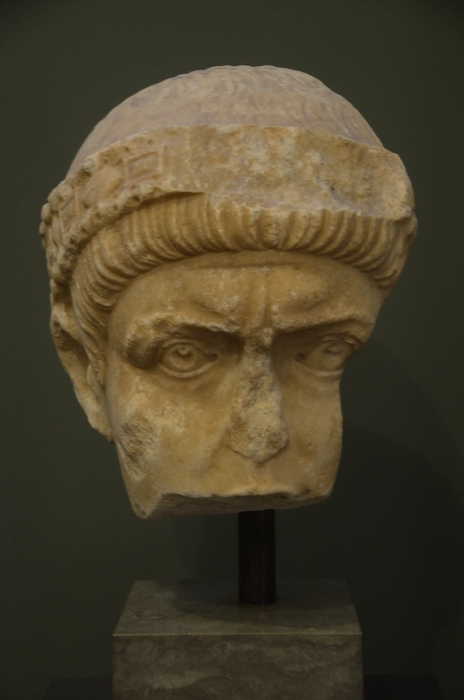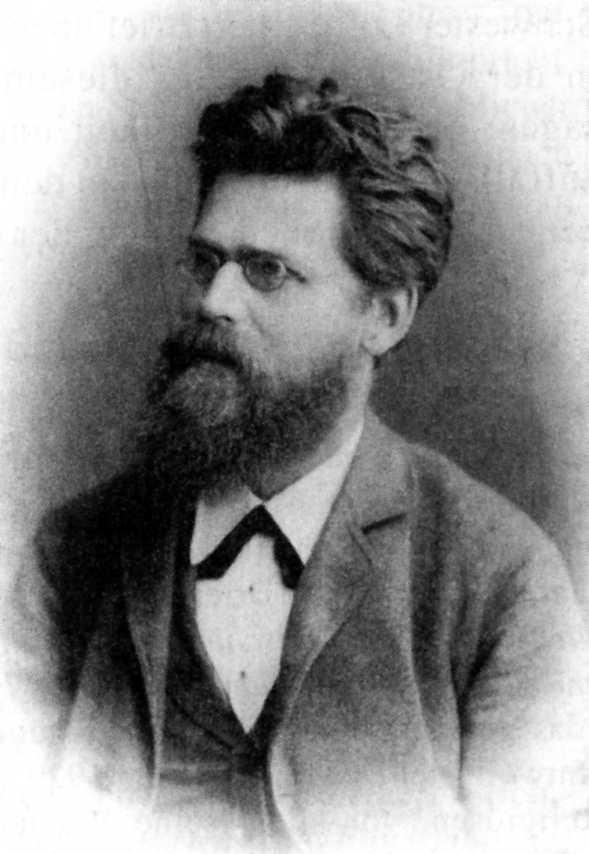|
Salutius
Saturninius Secundus Salutius ( 355–367) was a Roman official and Neoplatonist author. A native of Roman Gaul, Gaul, he had a successful career as a provincial governor and officer at the imperial court, becoming a close friend and adviser of the Emperor Julian (emperor), Julian. Salutius was well versed in Greek philosophy and rhetoric, and had a reputation for competence and incorruptibility in office. He authored a Neoplatonic religious treatise titled ''On the Gods and the Cosmos'', in support of Julian's pagan reaction against Christianity. Life Salutius's official name was Saturninius Secundus, as he is called in inscriptions and official documents. The , or informal name, 'Salutius', sometimes 'Salustius', was otherwise the main way to refer to him. He was born to a non-Roman Senate, senatorial family in Roman Gaul, and was a pagan.''Brill's New Pauly'',Secundus His career included governorships of Gallia Aquitania and Africa (Roman province), Africa, as well as the positi ... [...More Info...] [...Related Items...] OR: [Wikipedia] [Google] [Baidu] |
Emperor Julian
Julian ( la, Flavius Claudius Julianus; grc-gre, Ἰουλιανός ; 331 – 26 June 363) was Roman emperor from 361 to 363, as well as a notable philosopher and author in Greek. His rejection of Christianity, and his promotion of Neoplatonic Hellenism in its place, caused him to be remembered as Julian the Apostate in Christian tradition. A nephew of Constantine, Julian was one of few in the imperial family to survive the purges and civil wars during the reign of Constantius II, his cousin. Julian became an orphan as a child after his father was executed in 337, and spent much of his life under Constantius's close supervision.''Oxford Dictionary of Late Antiquity'', "Julian the Apostate", p. 839 However, the emperor allowed Julian to freely pursue an education in the Greek-speaking east, with the result that Julian became unusually cultured for an emperor of his time. In 355, Constantius II summoned Julian to court and appointed him to rule Gaul. Despite his inexperience, ... [...More Info...] [...Related Items...] OR: [Wikipedia] [Google] [Baidu] |
Julian (emperor)
Julian ( la, Flavius Claudius Julianus; grc-gre, Ἰουλιανός ; 331 – 26 June 363) was Roman emperor from 361 to 363, as well as a notable philosopher and author in Greek. His rejection of Christianity, and his promotion of Neoplatonic Hellenistic religion, Hellenism in its place, caused him to be remembered as Julian the Apostate in Christian tradition. A nephew of Constantine I, Constantine, Julian was one of few in the imperial family to survive the purges and civil wars during the reign of Constantius II, his cousin. Julian became an orphan as a child after his father was executed in 337, and spent much of his life under Constantius's close supervision.''Oxford Dictionary of Late Antiquity'', "Julian the Apostate", p. 839 However, the emperor allowed Julian to freely pursue an education in the Greek-speaking east, with the result that Julian became unusually cultured for an emperor of his time. In 355, Constantius II summoned Julian to court and appointed him to ru ... [...More Info...] [...Related Items...] OR: [Wikipedia] [Google] [Baidu] |
Jovian (emperor)
Jovian ( la, Iovianus; 331 – 17 February 364) was Roman emperor from June 363 to February 364. As part of the imperial bodyguard, he accompanied Emperor Julian on his campaign against the Sasanian Empire and following the latter's death, Jovian was hastily declared emperor by his soldiers. With the army exhausted, provisions running low, and unable to cross the Tigris, he sought peace with the Sasanids on humiliating terms. After his arrival at Edessa, Jovian was petitioned by bishops over doctrinal issues concerning Christianity. His return to Constantinople would be cut short by his death at Dadastana. Jovian reigned eight months. Life Jovian was born at Singidunum, Moesia Superior (today Belgrade in Serbia), in 331, son of Varronianus, the commander of Constantius II's imperial bodyguards (''comes domesticorum''). He also joined the guards and in this capacity in 361, escorted Constantius' remains to the Church of the Holy Apostles. Jovian was married to Charito and they ... [...More Info...] [...Related Items...] OR: [Wikipedia] [Google] [Baidu] |
Chalcedon Tribunal
Shortly after the death of Roman emperor Constantius II, his successor Julian held a tribunal at the city of Chalcedon, which was then a suburb of Constantinople. Saturninius Secundus Salutius, who was raised to the rank of Praetorian Prefect was given the chief oversight and with him were associated Claudius Mamertinus (another civilian), and four military commanders, Arbitio, Agilo, Nevitta and Jovinus. The first two were ex-officers of Constantius, while the other two had served with Julian. At this tribunal a large part of Constantius's ministers were brought to trial. In charge of the daily inquisitions was Arbitio, "while the others were present merely for show" according to historian Ammianus Marcellinus. Palladius, Taurus, Euagrius, Saturninus and Cyrinus are known to have been exiled. Florentius, Ursulus and Eusebius were condemned to death. Apodemius and Paulus Catena were even burned alive. Another Florentius was imprisoned on a Dalmatian island. Constantius II died ... [...More Info...] [...Related Items...] OR: [Wikipedia] [Google] [Baidu] |
Praetorian Prefecture Of The East
The praetorian prefecture of the East, or of the Orient ( la, praefectura praetorio Orientis, el, ἐπαρχότης/ὑπαρχία τῶν πραιτωρίων τῆς ἀνατολῆς) was one of four large praetorian prefectures into which the Late Roman Empire was divided. As it comprised the larger part of the Eastern Roman Empire, and its seat was at Constantinople, the praetorian prefect was the second most powerful man in the East, after the Emperor, in essence serving as his first minister. Structure The Prefecture was established after the death of Constantine the Great in 337, when the empire was split up among his sons and Constantius II received the rule of the East, with a praetorian prefect as his chief aide. The part allotted to Constantius encompassed four (later five) dioceses, each in turn comprising several provinces. The authority of the prefecture stretched from the Eastern Balkans, grouped into the Diocese of Thrace, to Asia Minor, divided into the d ... [...More Info...] [...Related Items...] OR: [Wikipedia] [Google] [Baidu] |
Valentinian I
Valentinian I ( la, Valentinianus; 32117 November 375), sometimes called Valentinian the Great, was Roman emperor from 364 to 375. Upon becoming emperor, he made his brother Valens his co-emperor, giving him rule of the eastern provinces. Valentinian retained the west. During his reign, Valentinian fought successfully against the Alamanni, Quadi, and Sarmatians. Most notable was his victory over the Alamanni in 367 at the Battle of Solicinium. His general Count Theodosius defeated a revolt in Africa and the Great Conspiracy, a coordinated assault on Roman Britain by Picts, Scots, and Saxons. Valentinian was also the last emperor to conduct campaigns across both the Rhine and Danube rivers. Valentinian rebuilt and improved the fortifications along the frontiers, even building fortresses in enemy territory. He founded the Valentinianic dynasty, with his sons Gratian and Valentinian II succeeding him in the western half of the empire. Early life Valentinian was born in 321 ... [...More Info...] [...Related Items...] OR: [Wikipedia] [Google] [Baidu] |
Roman Gaul
Roman Gaul refers to GaulThe territory of Gaul roughly corresponds to modern-day France, Belgium and Luxembourg, and adjacient parts of the Netherlands, Switzerland and Germany. under provincial rule in the Roman Empire from the 1st century BC to the 5th century AD. History During the Republic The Roman Republic's influence began in southern Gaul. By the mid-2nd century BC, Rome was trading heavily with the Greek colony of Massalia, Massilia (modern Marseille) and entered into an alliance with them, by which it agreed to protect the town from local Gauls, including the nearby Aquitani and from sea-borne Carthaginians and other rivals, in exchange for land that it wanted in order to build a road to Hispania, to assist in troop movements to its provinces there. The Mediterranean settlements on the coast continued to be threatened by the powerful Gallic tribes to the north and in 122 BC the Roman general Gnaeus Domitius Ahenobarbus (consul 122 BC), Gnaeus Domitius Ahenoba ... [...More Info...] [...Related Items...] OR: [Wikipedia] [Google] [Baidu] |
Iamblichus Of Chalcis
Iamblichus (; grc-gre, Ἰάμβλιχος ; Aramaic: 𐡉𐡌𐡋𐡊𐡅 ''Yamlīḵū''; ) was a Syrian neoplatonic philosopher of Arabic origin. He determined a direction later taken by neoplatonism. Iamblichus was also the biographer of the Greek mystic, philosopher, and mathematician Pythagoras. In addition to his philosophical contributions, his ''Protrepticus'' is important for the study of the sophists because it preserved about ten pages of an otherwise-unknown sophist known as the Anonymus Iamblichi. Life According to the ''Suda'' and Iamblichus' biographer, Eunapius, he was born in Chalcis in Coele Syria. The son of a wealthy, well-known family, Iamblichus was descended from the Emesene dynasty. He initially studied under Anatolius of Laodicea and later studied under Porphyry, a pupil of Plotinus (the founder of neoplatonism). Iamblichus disagreed with Porphyry about theurgy, reportedly responding to Porphyry's criticism of the practice in ''De Mysteriis Aegypti ... [...More Info...] [...Related Items...] OR: [Wikipedia] [Google] [Baidu] |
Otto Seeck
Otto Karl Seeck (2 February 1850 – 29 June 1921) was a German classical historian who is perhaps best known for his work on the decline of the ancient world. He was born in Riga. He first began studying chemistry at the University of Dorpat but transferred to the University of Berlin to study classical history under Theodor Mommsen. Seeck earned his doctorate from the University of Berlin in 1872 after writing his thesis on the ''Notitia Dignitatum'', a document enumerating the roles and responsibilities of administrative officials of the later Roman empire c. 400 AD. He habilitated under Mommsen in Berlin in 1877 and, with the help of Mommsen, secured a post at the University of Greifswald in 1881, where he taught Roman History and Archaeology. There he met Karl Julius Beloch. In 1907 he went to the University of Münster where he continued teaching and writing. Seeck wrote many influential works on late antiquity and social Darwinism. He was widely published in such academi ... [...More Info...] [...Related Items...] OR: [Wikipedia] [Google] [Baidu] |
Thomas Taylor (neoplatonist)
Thomas Taylor (15 May 17581 November 1835) was an English translator and Neoplatonist, the first to translate into English the complete works of Aristotle and of Plato, as well as the Orphic fragments. Biography Thomas Taylor was born in the City of London on 15 May 1758, the son of a staymaker Joseph Taylor and his wife Mary (born Summers). He was educated at St. Paul's School, and devoted himself to the study of the classics and of mathematics. After first working as a clerk in Lubbock's Bank, he was appointed Assistant Secretary to the Society for the Encouragement of Art (precursor to the Royal Society of Arts), in which capacity he made many influential friends, who furnished the means for publishing his various translations, which besides Plato and Aristotle, include Proclus, Porphyry, Apuleius, Ocellus Lucanus and other Neoplatonists and Pythagoreans. His aim was the translation of all the untranslated writings of the ancient Greek philosophers. Taylor was an admire ... [...More Info...] [...Related Items...] OR: [Wikipedia] [Google] [Baidu] |



